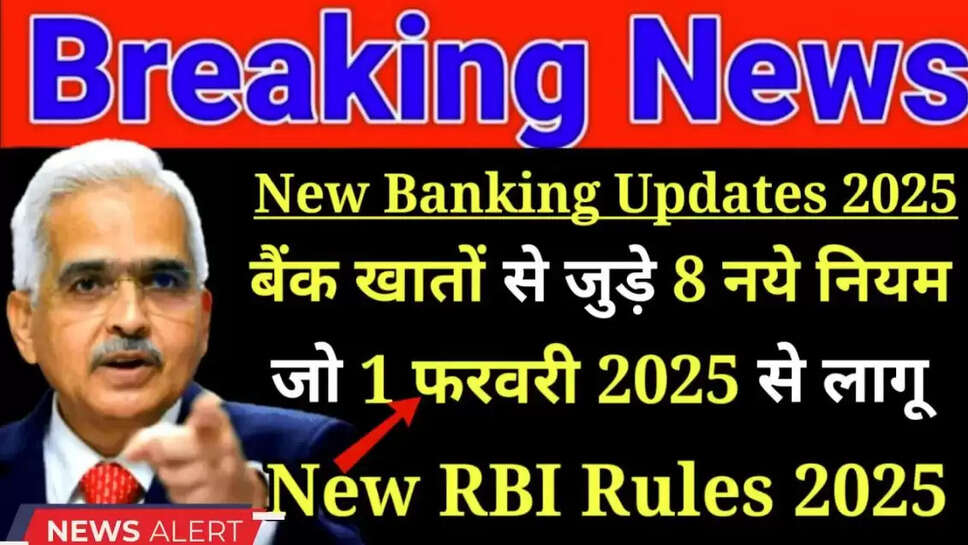Now when the transaction fails, the bank will refund in so many days - RBI's new rule RBI New Rule 2025
RBI New Rule 2025 - In today's digital era, most people use online payment - whether to withdraw money from ATMs, shop with cards or send money from UPI. But many times it happens that the transaction fails and money is deducted from the account.

Digital Desk: Neither cash is available, nor does the payment go to the front. In such a situation, the biggest problem is when the money will be returned. Now ending this concern, RBI has made strict rules.
Now not late, money back in due time
The RBI has ordered all banks through a circular that if the transaction of a customer fails and the money is deducted, the money will have to be returned within a fixed deadline. If the bank does not return the money in this time limit, then they will have to pay a fine of Rs 100 to the customer every day.
The name of this rule is - a standard rule of TAT harmonization i.e. Turn Around Time. This means that now banks will not get a chance to avoid customers' problem.
Which transactions are applicable to these rules?
1. No money came out of ATM, but cut off from account
If you withdraw money from the ATM, but the cash did not come out and the money was deducted, then the bank will have to return the money within 5 days. Every day a fine of Rs 100 will be incurred from the 6th day.
2. Card to card transfer failed
If you send money to someone else's card from the card and that transaction failed, then the bank will have to return the money within 2 days. Fines on the third day.
3. UPI or POS transaction failed
If the money was deducted from UPI, card swipe, IMPS or POS machine, the money was deducted and did not reach the front, then the bank will have to reverse within 1 day (T+1). If not done, it will be fined from the second day.
If the bank's fault is, only you will get a fine
If the transaction failed has occurred by your mistake - such as wrong UPI ID or password incorrectly inserted - then this penalty will not apply. But if the mistake is due to bank, network or technical reason, then it is the responsibility of the bank to return the money on time.
Bank's relaxation will no longer get excuse
This rule of RBI is a relief for millions of people who used to go round the bank for several days after being deducted. Earlier people used to complain, then the bank used to sit silent. Now the bank has been made accountable with this guideline of RBI.
What to do customers if money gets stuck?
- First keep the screenshot or receipt of the transaction.
- Note the transaction ID and date.
- Immediately complain on the bank's customer care or go to the bank branch and file a written complaint.
- If the bank does not return the money in the scheduled time, then he can demand a fine of Rs 100 per day.
- If the bank does not get a reply or the problem is not resolved, then RBI's banking Ombudsman can complain on the portal.
What are the advantages of the customer?
- If the transaction fails, now you will not have to run for money for months.
- The bank's negligence will have to be fined directly.
- The customer has the right to ask for money in time and take a fine for not getting it.
This rule is necessary in the world of digital payment
In today's time, UPI, net banking and card payment have become so common that crores of transactions are done daily. But if some of these failure and the money gets stuck, then the problems of many people increase. Especially for those people for whom every money is necessary.
This decision of RBI is very important in this sense because now the customer has got the right and his money will also be safe.
Keep in mind these important things
- Complain immediately if the transaction fails.
- Keep all payment receipts, screenshots and transaction IDs.
- If the money is not received after the deadline, then demand a fine from the bank.
- If needed, file a complaint on the RBI portal.
In the world of digital transactions, it is common to fail transactions, but now customers will not be helpless. RBI has given a strong security so that customers can get their money on time and banks have to pay their negligence. So next time your transaction fails, do not panic - just know your rights and take action.
